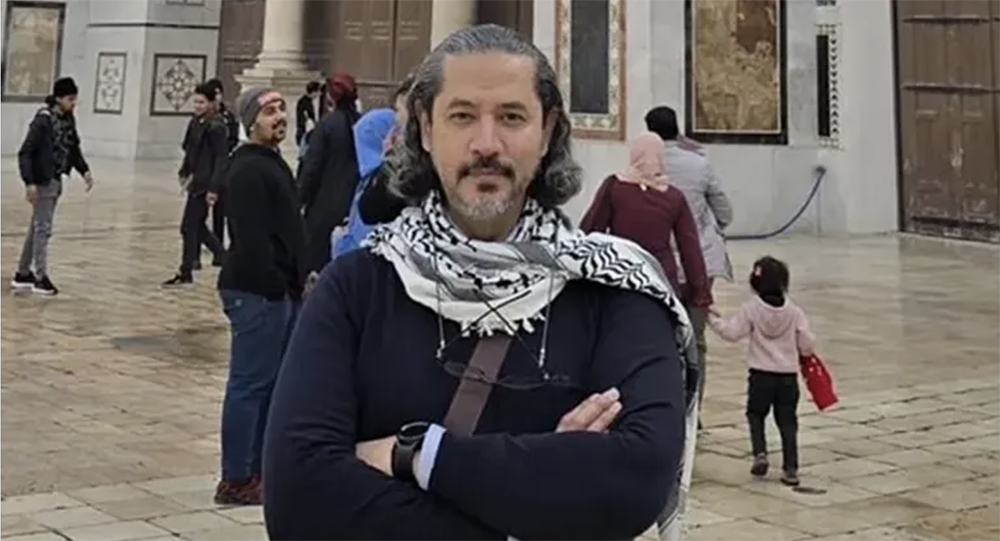The Room Where it Happened: A White House Memoir, the highly critical tell-all book by President Donald Trump’s former national security advisor John Bolton, has sent shock waves inside and outside the United States since its publication last month. The book has caused a particular sensation surrounding its description of Trump’s dealings with Turkey, detailing the frequent communications between Trump and President Recep Tayyip Erdoğan. Crucially, Bolton recounts how Erdoğan has used this special White House connection to seek favors for Turkey and to advance his interests, a charge that Turkey denies.
In this Q&A, POMED’s Merve Tahiroğlu talks with Eric Edelman, former U.S. Ambassador to Turkey, about Bolton’s revelations regarding Trump’s interactions with Erdoğan and what they mean for U.S.-Turkey relations.
POMED: In his book, Bolton documents a heavy traffic of communication between Presidents Trump and Erdoğan—not just many meetings, but very frequent telephone calls. How unusual is this?
Eric Edelman: In my experience, this level of communication is not normal. Even President Obama, who initially regarded Erdoğan as one of the five world leaders with whom he was on the best terms, did not speak to Erdoğan with frequency. Moreover, many of the communications between Trump and Erdoğan seemed to pass between Trump’s son-in-law Jared Kushner and Erdoğan’s son-in-law and heir apparent Berat Albayrak. This essentially substitutes a family-to-family relationship for the normal government-to-government contacts that would be used to manage the bilateral relationship.
What lessons do you think Erdoğan is drawing from these interactions?
I think Erdoğan sees both Trump and the family ties described above as a “get out of jail free” card with regard to the U.S. Congress and potential sanctions under the Countering America’s Adversaries Through Sanctions Act (CAATSA), which are triggered by Turkey’s purchase of the S-400 air and missile defense system from Russia. Trump’s lenience has essentially validated Erdoğan’s broader foreign policy approach of tilting Turkey towards Russia and engaging in an unprecedented level of Turkish military intervention in the Middle East. It has allowed Erdoğan to argue that his actions have no consequences for the U.S.-Turkish relationship because Trump will “protect” him.
What do you think motivates Trump’s apparent deference to Erdoğan?
Ambassador Bolton, in his book and in a number of private talks, has suggested that Trump’s personal business ties (including, it would appear, the Trump Towers property in Istanbul) may provide some of the explanation. But Trump has also shown a predilection for authoritarian rulers such as Russian President Vladimir Putin and Chinese President Xi Jinping, who lead countries where the U.S. president does not have known current business interests. Trump clearly admires “strength” and “toughness” and seems to see Erdoğan in that light.
What impact has Trump’s relationship with Erdoğan had on U.S. policy on Turkey?
I don’t think we entirely know the answer to that question yet. Bolton’s book is a beginning, but we will need to learn more about this. The cozy ties between the two leaders clearly resulted in a haphazard U.S. military drawdown in Syria that has made the already daunting task of stabilizing the areas liberated from the Islamic State enormously more difficult. These ties have in many ways also undercut the Trump administration’s policy of putting “maximum pressure” on Iran, which continues to play a major role on the ground in Syria via proxy forces. As to the longer-term ramifications for the U.S.-Turkey relationship, that will depend on the outcome of the U.S. election and the impact of Turkey’s increasingly fragile economy on the country’s domestic politics.
If Trump loses the election in November and we have Biden in the White House, do you expect a sea change in U.S.-Turkey relations?
Turkey will remain a key player in the region because of its location and its historic role as a member of the North Atlantic Alliance (although increasingly it is regarded as an unreliable ally).
As a United States Senator, Joe Biden always seemed better disposed to Greece than to Turkey, but became a better “friend” to Turkey over the years—particularly early in the Obama administration. I would certainly expect the Turkish government to court the putative Biden administration at the outset.
But I think Turkey’s turn to Russia and hostility to the Syrian Kurds will create serious problems with a Biden administration given the hostility in Democratic Party circles to Russia because of the Kremlin’s interference in the 2016 election and the fact that it was the Obama administration that decided to rely on the [Syrian Kurdish militia] YPG to fight the Islamic State. At least in that instance, the Obama administration was willing to work around Turkey rather than cave in to incessant Turkish government demands. (I am thinking here about the relief of the Islamic State’s siege of the Syrian Kurdish town of Kobani in 2014 thanks to U.S. efforts and despite Turkish warnings).
Outside of Trump’s relationship with Erdoğan, the U.S.-Turkish relationship is fraught and fractious due to these and other serious policy disagreements. So I would expect that to continue in a Biden administration.
Eric Edelman served as U.S. Ambassador to Turkey from 2003 to 2005 and as Undersecretary of Defense for Policy from 2005 to 2009. He is currently a Roger Hertog Distinguished Practitioner-in-Residence at the Johns Hopkins University’s School of Advanced International Studies (SAIS).
Merve Tahiroğlu is POMED’s Turkey Program Coordinator. Follow her on Twitter @MerveTahiroglu.





